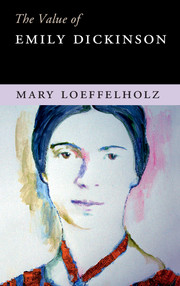3 - Women, now, queens, now!
Published online by Cambridge University Press: 05 June 2016
Summary
In his magisterial anthology The Experience of Literature, first issued in 1967 and intended for college-level literary courses, Columbia University's august literary critic Lionel Trilling included a poem by Emily Dickinson among the twenty-two works of poetry he selected for reprinting and explication. The Experience of Literature introduced Dickinson into very good company, alongside Milton's “Lycidas,” Arnold's “Dover Beach,” Keats's “Ode to a Nightingale,” Marvell's “To His Coy Mistress,” Shelley's “Ode to the West Wind,” and Eliot's “The Waste Land,” not to mention, elsewhere in the anthology, Sophocles's Oedipus Rex and Shakespeare's King Lear – a substantial vote of confidence in her value, especially for a poet whose works had only been available in something approaching a complete and reliable edition since 1955.
Trilling's principle of selection was anything but mysterious: allowing for the economies that dictated “Lycidas” over Paradise Lost, he represented major poets by one of their best-known works. Confronted with Dickinson's poetry, though, that principle appears to have broken down. Of the 1,775 poems before him in Thomas H. Johnson's 1955 variorum edition, Trilling lit upon an obscure short poem that had not drawn any previous editor's eye before Bolts of Melody (1945) gathered together the last bits of Dickinson's writing left unpublished in Mabel Loomis Todd's possession:
“Go tell it”—What a Message—
To whom—is specified—
Not murmur—not endearment—
But simply—we obeyed—
Obeyed—a Lure—a Longing?
Oh Nature—none of this—
To Law—said sweet Thermopylae
I give my dying Kiss—
(as printed in Trilling, including em-dashes; Fr 1584, circa 1882)Perhaps the poem's direct reference to classical Greece amplified its value for Trilling, given the tacit theory of world literature behind his anthology's selections of drama and fiction (for what Trilling considered “obvious reasons,” the poems “are all English and American”). One matter, though, worried him. Acknowledging that “One of the tenets of modern literary criticism is that a poem is a self-contained entity” to which “knowledge of the personal life of the poet … is considered irrelevant,” he nevertheless conceded that for the purposes of this “striking little poem, there is at least one personal fact about the author which it is essential we bring to our reading – that the poet is a woman.”
- Type
- Chapter
- Information
- The Value of Emily Dickinson , pp. 57 - 76Publisher: Cambridge University PressPrint publication year: 2016

